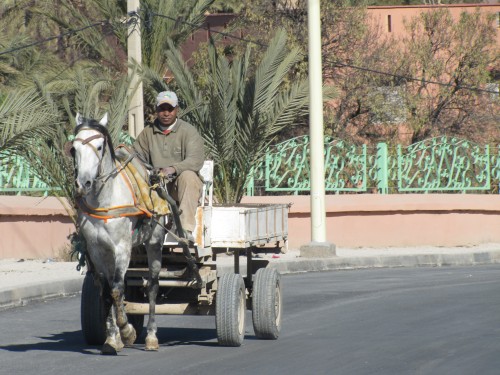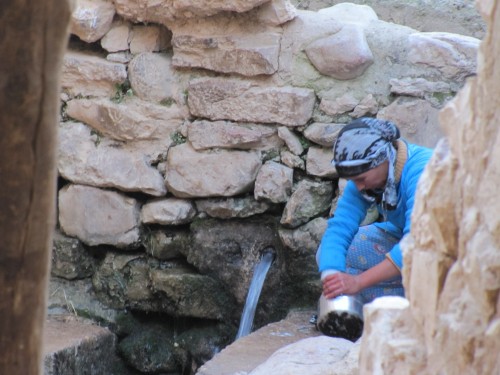Fiction #49 The storyteller
The chatter in the lunch shed at my primary school was noisy without being overbearing. It was the heat that was overbearing. This was an era when air conditioning was almost unheard of, certainly in the rural community where I grew up in the Murray mallee region of South Australia.
‘I need a drink,’ I muttered to anyone who was listening. Sweat made my shirt and shorts clammy and uncomfortable. I took the tin mug from my school bag and walked to the end of the veranda attached to the single classroom. This doubled as a lunch shed, a place to keep our bags on the dozens of hooks hanging on the wall like two rows or upside down question marks. Two low wooden and very splintery benches ran the entire length of the partially enclosed veranda, one against the stone wall and the other against the tin wall opposite.
I reached up to lower the spout of the water bag hanging from the rook. Its canvas sides were darkened by the rain water seeping through. The occasional drip added to the small pool wetting the cement underneath. I filled my mug and took a long swig of cool water. It was far cooler than the rain water from the tank a few steps away.
‘Fill up me mug, too ferret face,’ Rodney demanded. ‘Gotta broken arm so it hurts to get a drink.’
I knew that he could manage very well without my help, but ever since the accident in the cricket game a few weeks ago, he played on everyone’s sympathy. His plaster cast was grubby and tattered top and bottom. I can still remember the crack as the ball hit the bone and broke it. I can still hear him screaming for his mummy, like a two year old in terrible pain, not the bully boy we had grown to know over the last few years.
Rodney swallowed the water without thanking me for helping him. He hung the mug on the first hook on the top row. He always demanded the same hook, punching anyone who violated this unwritten law of the school playground. He wheeled around the corner and headed off down the hill to the oval. He still played cricket despite the fresh memory of his recent accident.
‘Anyone for a story?’ I said as turned to the remaining children in the lunch shed. I knew that Rodney would not return to bother me until the teacher blew his whistle to mark the end of play time. About half a dozen of the younger children still loitered over their cheese or apricot jam sandwiches. All of them nodded enthusiastically.
‘Sit closer together – there next to Peter,’ I instructed. ‘When you are ready I will start the story.’ I reached into my bag for a shoe box. The bottom of the box had been cut out in the shape of a television screen. Television had just started broadcasting in the eastern states but no-one in our community had ever seen a television set, except in glossy pictures in the Woman’s Weekly magazine. Even if there were broadcasts available in our district, none of the farmers in the area could have afforded a set anyway.
‘Is everyone ready?’ I looked at my expectant audience, their eyes wide open and their mouths gaping with half eaten bread crusts, or pieces of apple. I turned one of the dowels stuck through from the top to the bottom of the box. As it turned the attached strip of paper moved like a film strip across the front of the box. A picture I had drawn appeared in the opening and I stopped turning. I started telling my latest story…
‘Once upon a time there lived a…’ I was a firm believer in traditional beginnings. For a few minutes I related the story shown in the picture, before turning the rod again to reveal a new picture. And so the story continued. The young children laughed at the funny parts, gasped at the frightening bits and applauded wildly when I announced the end of the story.
I had just finished the story when Mr. Ewing the teacher came out of the classroom and blew his whistle. For some reason we didn’t have a school bell, and with no mains electricity in the district yet – power was to arrive here some years later – a siren was out of the question. Any meetings at night were conducted using kerosene lanterns.
I was about to pack my story box – my pretend television set – back into my bag when Rodney and the rest of the boys stormed around the corner and into the lunch shed. He raced over to my bag and snatched the box from me.
‘Whatcha got there, ferret face?’ he sneered. ‘You been playing with the little kids again? Cricket not good enough for you?’ He looked at my diorama, peering at the drawings I’d done. ‘You’re a pathetic little mousey worm. This is worse than dog poo.’
‘Give it back, Rodney,’ I protested, ‘that’s mine. No don’t pull it apart.’
He placed his hands on the edges of the box and pulled, ripping the box into two pieces. He then ripped out my careful drawings and ripped them too. I tried to stop him, but he was both taller and stronger and kept it all at arm’s length.
Rodney ran across to the rubbish bin and stuffed my pride and joy into the food scraps.
‘There you are maggot,’ he yelled. ‘I’ve put it in a safe place for you.’
He hadn’t noticed Mr. Ewing coming up behind him. ‘Rodney Henschke. Come with me.’
‘Ye-ow – that hurts teach!’ He screwed up his face as the teacher’s firm grip on his ear took effect. ‘Leg-go of me ear.’
Mr. Ewing dragged the reluctant ear – and its owner – into the shed next to the classroom. This was the woodwork and craft shed. Our teacher fancied himself as a carpenter and gave the boys weekly lessons in the craft. Meanwhile, his wife took the girls in sewing and basket making classes.
‘Stand there!’ he demanded. ‘Not a move.’
Rodney rubbed his sore ear making it even redder. ‘You’ll pay for this Ewing. Wait ‘til my father hears about this.’
‘Then I’d better give you something else to tell your father.’ The teacher had reached into a storage space and had retrieved a yard long piece of dowelling. He lightly tapped the rounded wood into the palm of his hand. ‘Make sure you tell your father everything, about how you teased a fellow student, how you snatched his property from his bag and how you not only destroyed it but disposed of it in the rubbish bin.’ He paused for his words to sink in, gently tapping his palm for effect.
‘You’re not going to…?
‘Yes, Rodney.’
‘But what did I do wrong?’ he whined.
‘Are you deaf as well as stupid?’
‘Don’t call me stupid! I’m not stupid!’ He spat the words out with venom. I watched spellbound and noticed that these words took the normally mild Mr. Ewing by surprise.
The tapping continued while Mr. Ewing considered his options. ‘What I’ve called you is nothing compared with what you called your classmate Thomas.’ The teacher turned to me. ‘Thomas? You okay?’
I nodded and moved a little closer to the open door.
‘Rodney – you need to apologise to Thomas.’
‘I won’t. That weasel stinks like a fox’s bum. He only wants to play with the little kids. He is such a baby.’ For his last word he used a babyish, whinging sound. He thumped his plaster cast down on the bench. Chips came off and fell like confetti to the floor.
‘So – no apology?’
‘Stuff you teach. An’ stuff that baby too.’
‘You leave me with no choice.’ Mr. Ewing caressed the stick in his hand. I noticed how stained his finger tips were. From tamping down his pipe I figured. He was the first person I’d ever know who actually smoked a pipe. I had seen plenty in photos in magazines and books, but not in real life.
‘Whatcha gonna do?’
I noticed Rodney’s eyes narrow into those cunning slits he often displays.
‘Bend over.’
‘What?’ he said, as if he didn’t comprehend this simple instruction.
‘Bend over with your hands on your knees.’ The teacher continued stroking the wood. I momentarily saw a cloud of sadness drift over his craggy face. It was deeply tanned from many hours spent out in the wheat fields of the district. He picked up some extra money in the summer holidays sewing wheat bags for the local farmers. I’d spent several happy days helping him and my father bag sewing.
Rodney backed towards the corner of the shed. Mr. Ewing grabbed him behind the neck, forcing his head down. ‘Bend over with your hands on your knees.’
Finally Rodney, resigned to his fate, complied.
Thwack! Thwack! Thwack!
I watched in horror as the piece of dowelling swung rapidly into contact with Rodney’s buttock. Mr. Ewing straightened up, ran his fingers gently over the wood once more, and replaced it on the rack. The victim backed white-faced against the wall. His lips trembled, a sliver of saliva dribbled to his chin and I thought I detected a hint of tears shimmering in his eyes. In all of our years together in the same class, I’d never known him to be caned, no matter how much he had teased, taunted and annoyed the other children.
As we proceeding back into the silent classroom, I couldn’t help thinking how life with Rodney Henschke had taken a sudden nightmarish turn.
© 2015 Trevor Hampel
All rights reserved.
Notes:
- Although I have listed this piece of writing under fiction, some of it is true, based on a real life – mine.
- This piece was originally written as a warm-up writing exercise.
- You can read more of my stories here.


